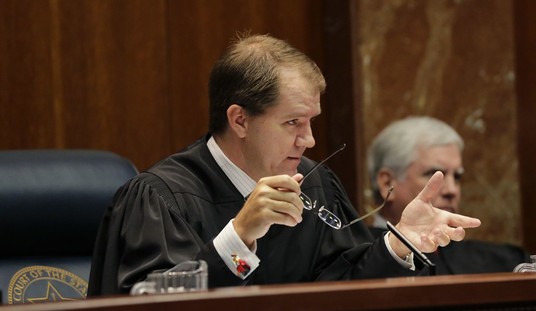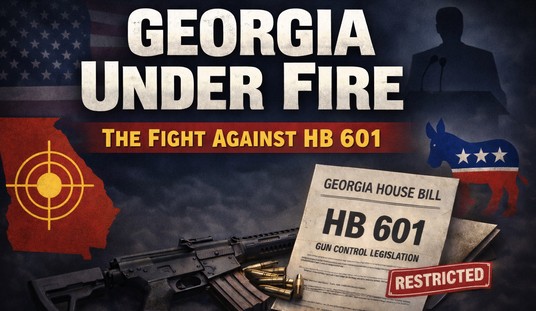Well, we now know the answer to a question I asked over the weekend: would the Trump administration seek Supreme Court review of an appeals court decision that found the federal law prohibiting "unlawful" users of drugs from possessing firearms unconstitutional, at least as it applied to a Mississippi man named Patrick Darnell Daniels, who was sentenced to nearly four years in prison for possessing firearms as an admitted marijuana user.
The deadline for the DOJ to file a cert petition was last Friday, and though the docket for the Daniels case didn't show any such petition, it's now been updated to include the newly-filed request.
In the petition, Solicitor General D. John Sauer says SCOTUS should grant cert, but should also hold off on hearing the case until another case known as United States v. Hemani has been decided by the Court.
Hemani would be a better vehicle than this case for deciding whether Section 922(g)(3) complies with the Second Amendment. Hemani cleanly presents that question; there, the Fifth Circuit squarely held that, because the government’s evidence was “deficient” under the constitutional standard set out in United States v. Connelly, Section922(g)(3) violates the Second Amendment as applied to the defendant. The Fifth Circuit’s decision in this case, by contrast, involves a procedural wrinkle. The court recognized that the evidence may have satisfied Connelly’s standard but determined that the district court had committed an “instructional error” that caused “the government’s burden of proof” to be “too low.” Granting plenary review in Hemani would enable this Court to focus on the basic Second Amendment issue of Section 922(g)(3)’s constitutionality rather than on case-specific issues concerning the adequacy of the jury instructions.
In the Daniels decision, the Fifth Circuit panel opined that the defendant might not have had his conviction overturned had the jury been instructed to consider whether he was actively under the influence of marijuana when he was pulled over for a traffic violation with guns in his car. The judges concluded that, while laws forbidding gun possession while intoxicated would likely be a part of the national tradition of gun ownership, statutes like Section 922(g)(3), which prohibiit any "unlawful" user of drugs from possessing a gun at any time, are likely too broad to withstand scrutiny under the Second Amendment.
So what are the facts in the Hemani case, and why does the Trump administration think it's a better vehicle for the Court to consider the constitutionality of Section 922(g)(3)? One reason may be that Ali Danial Hemani is a pretty unsympathetic defendant compared to Patrick Darnell Daniels.
Daniels admitted to using marijuana about 14 times per month, while Hemani is a drug dealer, according to the Solicitor General; one who used and sold promethazine, as well as using marijuana and cocaine. Hemani also has drawn the attention of the FBI for his alleged association with affiliates of of the Iranian Revolutionary Guard Corps, a designated foreign terrorist organization. From the cert petition:
In 2020, respondent and his parents traveled to Iran to participate in a celebration of the life of Qasem Soleimani, an Iranian general and terrorist who had been killed by an American drone strike the month before. Respondent’s mother was captured on video telling an Iranian news agency that she prayed that her two sons, including respondent, would become martyrs like Soleimani. Respondent also maintains weekly contact with his brother, who attends an Iranian university that the U.S. government has designated as having ties to terrorism. And respondent has told law-enforcement officials that, if he knew about an imminent terrorist attack by “a Shia brother” that would kill innocent people, he would not report it to the authorities.
When the FBI raided the Hemani home, agents found a Glock pistol, 60 grams of marijuana, and 4.7 grams of cocaine. Hemani was charged with possessing a firearm as an unlawful user of drugs, but a federal magistrate in Texas threw out the charge after concluding that Section 922(g)(3) was unconstitutional, at least as it applied to the defendant. The Biden administration appealed, but the Fifth Circuit agreed with the lower court, citing its 2024 decision in U.S. v. Connelly, where the appellate court concluded that "there is no historical justification for disarming a sober citizen not presently under an impairing influence.”
The Trump administration maintains that the Fifth Circuit "erred in holding that the Second Amendment precludes Congress from restricting the possession of firearms by habitual users of illegal drugs." Sauer argues that “laws banning the possession of guns by categories of persons thought by a legislature to present a special danger of misuse", that are "limited to the duration of that danger", are constitutionally sound.
Under that standard, Section 922(g)(3) complies with the Second Amendment. That provision targets a category of persons who pose a clear danger of misusing firearms: habitual users of unlawful drugs. Moreover, Section 922(g)(3) bars their possession of firearms only temporarily and leaves it within their power to lift the restriction at any time; anyone who stops habitually using illegal drugs can resume possessing firearms. Founding-era history, post-ratification history, and precedent all support the congressional judgment underlying that restriction.
While Sauer's cert petition in Hemani talks extensively about "habitual" users of unlawful drugs, Section 922(g)(3) doesn't include that word. Instead, it states that "it shall be unlawful for any person who is an unlawful user of or addicted to any controlled substance (as defined in section 102 of the Controlled Substances Act (21 U.S.C. 802))" to possess a firearm or ammunition.
Presumably, then, the law could be used to prosecute occasional users of illegal drugs. And while Sauer contends that those users can regain their Second Amendment rights simply by stopping their drug use, I'm not so sure about that. First, how would the government know when someone stopped using drugs? How long do they have to be drug-free before they're not longer an "unlawful" user? The Fifth Circuit suggests that only those who are actively under the influence when caught with a gun can be considered an unlawful user, but Sauer believes that's too narrow an approach.
The Solicitor General also argues that if the habitual drug user "lacks the motivation or will to comply with the law because of addiction or other factors, that fact alone provides powerful evidence of society’s interest in keeping him disarmed."
I've always heard that someone can be an addict even though they're not actively using a particular drug; the addiction doesn't disappear, but can be managed. If that's the case, then as far as Section 922(g)(3) goes, once an addict, always a prohibited person. Ending the drug use doesn't end the addiction, nor would it relieve someone of their disability under 922(g)(3). And given that the statute refers to "unlawful users or those addicted..." it seems evident that Congress did not intend for Section 922(g)(3) to apply solely to active drug users, much less habitual ones.
Sauer also argues that the statute "imposes only a limited burden on the right to keep and bear arms" because it "applies to a discrete category of individuals; like the law upheld in Rahimi, and unlike the laws struck down in Bruen and Heller, it “does not broadly restrict arms use by the public generally.”
That's true to some extent, though I think that with marijuana illegal under federal law but legal to one degree or another under the laws of 39 states, Section 922(g)(3) applies more broadly than Sauer suggests.
I'm not all that surprised to see the Trump administration seek Supreme Court review of these cases. The questions surrounding Section 922(g)(3) are important ones that should be addressed. I'm not even all that shocked that the Trump administration is defending the law in question, even though Trump himself came out in support of Florida's failed ballot initiative allowing recreational sale and use. More recently, Trump has called Washington, D.C.'s decriminalization of cannabis a failed policy that led to disorder in the capital.
It's disappointing, though, to see the Solicitor General attempt to defend Section 922(g)(3) by arguing that the statute is more limited than what the text suggests. The law isn't just used to go after crack addicts like Hunter Biden. It's keeping countless cancer patients from exercising their right to keep and bear arms if they use cannabis to help alleviate the side effects of chemotherapy. It's blocking medical marijuana users from obtaining a concealed carry license in some states.
The simplest solution to this conundrum might be for Congress to delist cannabis from the Controlled Substances Act while leaving more dangerous drugs like cocaine, meth, heroin, and fentanyl illegal for recreational use. It doesn't appear there are enough votes in either chamber to do that, though, which means it's up to the Supreme Court to decide when and where Section 922(g)(3) can be appllied without issue... or to kick this particular can down the road another term or two like it's done with bans on commonly-owned semi-automatic rifles.









Join the conversation as a VIP Member